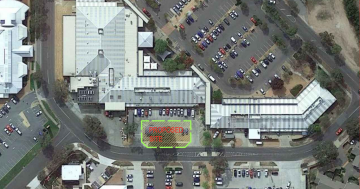The recent case of the Quayside apartments (ACAT overturned ACTPLA’s approval of a clearly non-compliant DA) shows that the ACT planning system is still totally dysfunctional. It’s worth spending a few minutes to consider why we continue to have case after case overturned when they get to the appeal stage.
Firstly, both main parties are driven by external imperatives. Developer donations, for example, have been proven to be corrupting influences, whether by individuals or systemic. Both ALP and Libs are very dependent on developer donations. They are both also very captive to particular constituencies, for example the ALP to the construction unions, and the Libs to developers’ peak bodies. The Property Council of Australia’s ever-strident Catherine Carter continually pushes for totally unbridled development, and non-capped population increases. Unbelievable .
Secondly, ACTPLA (and its predecessor, PALM) are incapable of learning from past experiences. This is particularly so under current CEO Neil Savery, who spends more time defending his dysfunctional organisation than he does in fixing it’s myriad problems. Part of these problems stem from the fact that they operate in isolation, away from the community and various representatives who can provide valuable input. In today’s Crimes he spent more time attacking the ACAT’s decision than he did in talking about improving ACTPLA’s performance. The ACAT used some quite strong language, showing it’s increasing frustration with ACTPLA decision-making.
Finally, government, planners and developers participating in the planning process have worked assiduously over the last several years to remove any form of community participation in that process. Corbell banned the Local Area Planning Advisory Committees, replacing them with the ill-fated Community Planning Forums (I said at the time these CPFs were designed to fail, and as expected, they did). Corbell then reneged on his word (which isn’t worth a cent) to re-establish the LAPACs if the CPFs failed.
The president of the Australian Local Government Association (ALGA) said on 31 March 2010 at the National Press Club: “To the development industry and state government [by this he includes Territory] planning officials who believe planning can be done by the application of a simple checklist… you are living in la la land. The problem when developers and other levels of government talk about planning reform is that they always start from a position that community involvement… is bad and it ought to be curtailed. State [and territory] governments have been captured by a development industry… running a smear campaign against community involvement in planning. We [ALGA] strongly believe that communities have a fundamental right to have a say in how their neighbourhood develops”.
So there you are, Savery and ACTPLA, the recipe for success laid out for you. Do you have the balls to do anything about it, or are we going to continue to be plagued by dysfunctional decisions relating to a dysfunctional planning system, administered by a dysfunctional planning authority run by a dysfunctional Chief Executive.




















